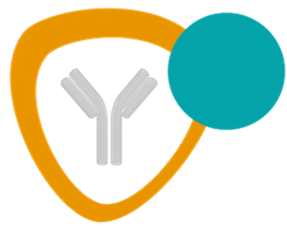We use cookies to make your experience better. To comply with the new e-Privacy directive, we need to ask for your consent to set the cookies. Learn more.
 FAQ MONOCLONAL ANTIBODIES
FAQ MONOCLONAL ANTIBODIES
Some frequently asked questions about monoclonal antibodies (click on the question to see the answer):
Monoclonal antibodies are identical. They recognise only one specific epitope and have a defined specificity for the antigen. Polyclonal antibodies recognise independent epitopes on the antigen. Monoclonal antibodies give reproducible results as the hybridoma parent line or final clone can be stored and recloned at a later stage to produce more monoclonal antibodies.
We use mice our rats as host animals. Routinely, 4 female BALB/c mice or 2 female Wistar rats are immunised for each project.
Proteins and haptens (e.g. peptides) which are either lyophilised, in solution or included in polyacrylamide gel slices are suitable for immunisation. For the screening procedure, the antigen must be provided lyophilised or in solution. Solution containing urea, guanidine hydrochloride, and acetic acid should be avoided. Please contact us to discuss other antigen preparations, buffer conditions and protein concentrations.
For the immunization and screening procedure a total of 1-2 mg protein or 15-25 mg peptide are required. These quantities are only guidelines and depend on the size of your protein. We will discuss those details further with you before the beginning of the project.
The protein should be as pure as possible, especially for the screening procedure. Peptides should be no less than 70% pure.
Peptides or haptens are not immunogenic enough and need therefore to be conjugated to a carrier protein such as keyhole limpet hemocyanin (KLH), ovalbumin (OVA) or bovine serum albumine (BSA). Our service includes the conjugation of up to 5 mg of peptide.
For the immunization the tag does not need to be removed. For the screening procedure however the protein without the tag is required to identify suitable hybridomas
The supernatants of hybridoma cells are screened by specific ELISA tests. The screening method is adapted to each project.
Hybridomas come from the fusion of spleen cells from the immunized animal with immortal murine myeloma cells. Hybridomas have therefore the capacity to grow indefinitely in cell culture under selection pressure and to secrete epitope specific antibodies.
You will receive the scheduled test bleeds during the immunisation protocol in order to test them in your specific application. About 1 ml of cell culture supernatant from each antigen-specific antibody-secreting hybridoma is supplied after the first screening in order to test and select the positive hybridomas. At the clonal stage, about 1 ml of cell culture supernatant from each stable clone is supplied for testing and confirmation. At the end of the project, the hybridoma parent lines (each frozen in vials) and the confirmed positive final clones (each frozen in vials) are supplied. More clones can be requested at an additional cost.
At the end of the project, we can store the selected hybridomas upon request in liquid nitrogen (- 170 °C) for one year for free. Please contact us for more details.
Monoclonal antibody production can be performed in vivo or in vitro, please browse our dedicated webpage or contact us for further information.
Hybridoma cells in culture producing the antibody: 30-200 ug/ml Ascitic fluid: 1-5 mg/ml.
A mycloplasma test can be performed upon request.
STILL HAVE QUESTIONS? CONTACT US Contact
